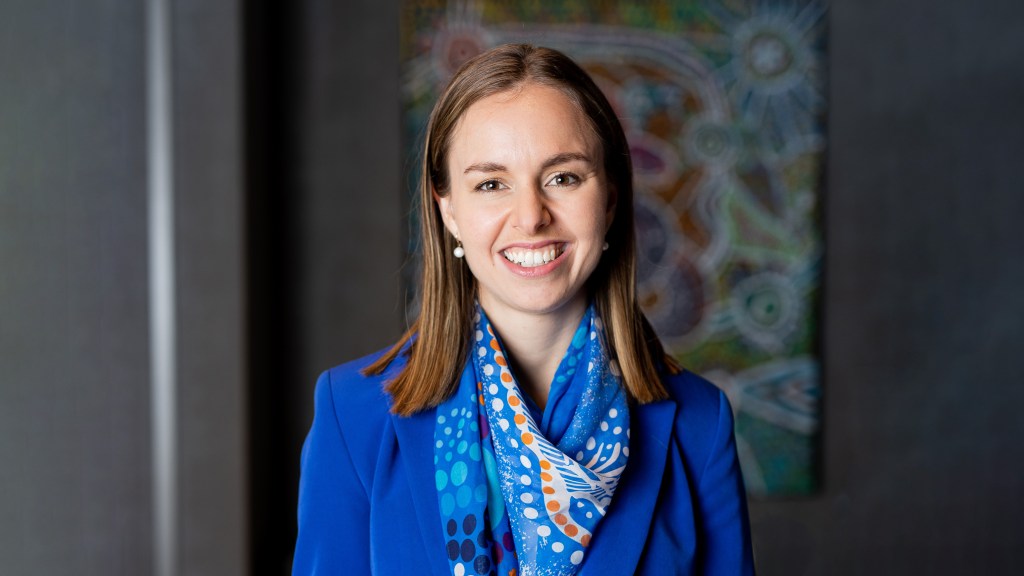Earlier this year, Alisha Geary zoomed in from Paris to the weekly Dream Venture Masterclasses ahead of a shark-tank style pitch against other Indigenous start-ups. Everyone there was vying for a slice of the $150,000 from Andrew and Nicola Forrest’s Minderoo Foundation and, perhaps more crucially, for the attention of the venture capitalists in the audience. For Geary, it was a gruelling 3am start.
The young First Nations entrepreneur – she identifies as Torres Strait Islander
on her mother’s side, but also has ties to her father’s Goreng Goreng people around Gladstone – was in Paris trying to move her intellectual property platform, Provvy, to Switzerland. It was proving difficult to get a visa, so she was also considering Denmark or the Netherlands.
“I’m ready for some overseas living,” she says, talking to Forbes Australia from Bali, where she’s now working. “The whole Web3 scene is quite sophisticated compared with Australia.”
It wasn’t the first time Geary had attended the Dream Venture masterclasses – like an Indigenous shark tank designed to equip graduates with the skills, connections and capital to grow their businesses.
Her attendance at the masterclasses two years ago led to an introduction to Blackbird VC’s Startmate Accelerator program. She was back again this year with plans to track the licensing of Indigenous artworks through blockchain. Geary pitched from Paris to representatives from Blackbird VC, Finley Capital, AirTree, Atlassian, Startmate and TDM Growth Partners, and took home the $20,000 Impact award.
Today’s Indigenous businesses have come a long way from the old stereotype of sole traders and artists working in remote communities, says Wilman-Nyoongar woman Shelley Cable, who runs the Forrest family backed non-profit Generation One.
“We’re trying to break those stereotypes,” says the accountant and consultant, who in 2017 addressed the United Nations about the importance of financial independence for Indigenous peoples. Cable is on the lookout for businesses with big horizons and big dreams. Like Geary’s Provvy. And now is the time, with venture capitalists taking a serious look at the Indigenous
business sector, she says.

“There’s genuine interest and intent to diversify the businesses they invest in. I’m sure you’re aware of the recent push to make sure female-led businesses get a fair share of investment. This is an extension of that. Investors are taking ESG (environment, sustainability, governance) seriously and we’re providing the opportunity through Dream Venture to connect their intent to the kind of businesses ready to take that investment on.”
Generation One was set up by the Minderoo with the aim of bridging the gap in unemployment rates between Indigenous and mainstream Australia within one generation. Indigenous businesses are reportedly 100 times more likely to employ an Indigenous worker, so it makes sense to help create more Indigenous businesses. The Dream Venture masterclasses are certainly working in Geary’s case.
While still studying commerce law at Bond University, she started her own activewear brand featuring First Nations designs. Other clothing manufacturers got in touch, asking how they could incorporate Indigenous designs in their products.

Geary introduced them to the artists she worked with but deals never seemed to eventuate, either because the intellectual property laws were too complicated, “or because the business owner would unintentionally say something offensive,” says Geary. “Artists are sensitive people, and the whole deal would break down. It was unfortunate because it was such an awesome
revenue stream for them.”
Geary started mediating the deals herself. “I figured out that it was best that the artists and
the business owners didn’t speak to each other. It’s a lot more efficient that way. I was studying law, so I had my head around contracts and intellectual property.”
There was so much mediation work, however, it was detracting her from her own brand.
“I realized there should be a platform for this, a website … I had a look into the art licensing industry and realised there wasn’t a lot going on there.”
And so Provvy – as in provenance – was born. Geary started to learn coding and soon realised the best way to protect artists’ rights was to connect the art to blockchain with smart contracts. “The smart contracts that sit behind NFTs were a better way of doing what I was doing with traditional contracts because the payments were automated and sent in real time to the artists.” Geary’s activewear business fell by the wayside as her passion for technology and innovation took over.
Provvy, which has raised $400,000, intends to launch its digital blockchain licensing system in early 2023. Geary hopes to increase the staff from three to five in the new year. In keeping with Dream Venture’s brief of choosing businesses with wide horizons, Geary doesn’t plan to stop with Australian First Nation’s art.
“I’m also working with non-Indigenous artists. We proactively onboard Indigenous artists as a priority, not just from Australia, but from the Philippines as well, for example, where I’m going next, and Indigenous artists all over the world. We’re trying to tap into all those communities and get them on board so that they can monetize their art.”
